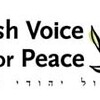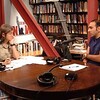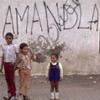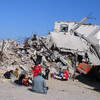
CNI Protests New Aid for Israeli Occupation
4 February 2005
In a letter to President Bush, Eugene Bird, President of the Council for the National Interest, agreed with Jewish organizations, including Americans for Peace Now, in protesting the latest request for aid, a reported $180 million to help construct new “state of the art” checkpoints along the security wall separating Israelis and Palestinians. Read more about CNI Protests New Aid for Israeli Occupation








